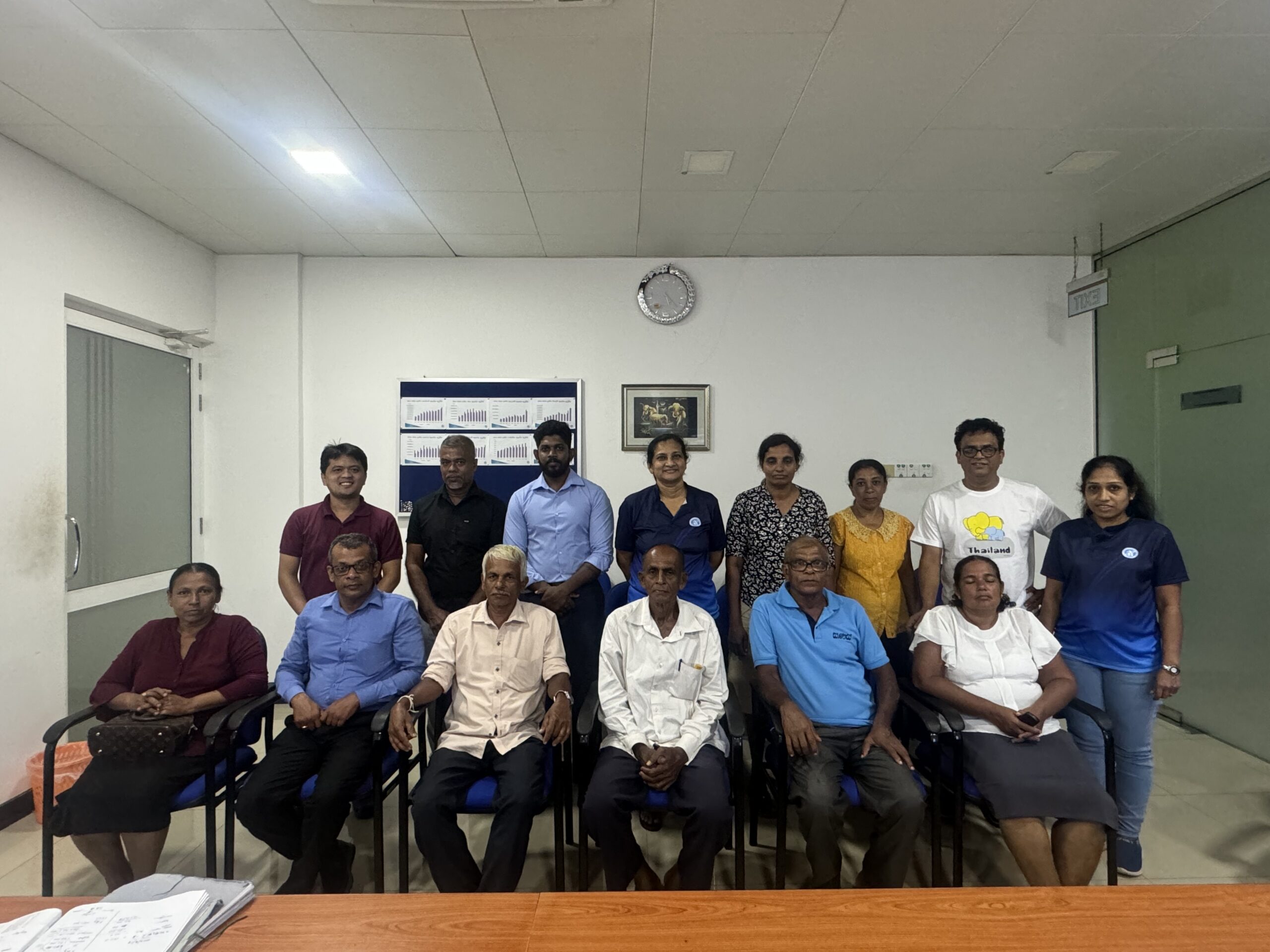Located along Ahugoda Temple Road in Pothuhera, Sri Lanka, the Ahugoda SANASA Primary Society has been a registered cooperative since 1983, playing a crucial role in supporting local rice farmers. With 2,500 SANASA Society members, including 75 farmers (40 women and 10 youth) and five primary farmer organizations, the cooperative focuses on parboiled rice production using rice boilers. Backed by SANASA Bank, the cooperative is working to expand production and distribution in response to the increasing market demand for this nutritious rice variety.
In August 2024, the cooperative secured a 5-lakh ARISE loan, payable by February 2025, to boost its operations. This funding enabled them to purchase 5,000 kilograms of rice and distribute 18 rice boilers to farmer members, transitioning them from small-scale, manual production to a more efficient, mechanized process. The adoption of rice boilers has significantly improved production capacity and quality, allowing farmers to process larger quantities while maintaining consistency. Additionally, some farmers have begun cultivating traditional rice varieties, further diversifying the cooperative’s product offerings.
The cooperative’s primary customers include SANASA members and non-rice-producing customers who place direct orders. With government research highlighting the superior nutritional value of parboiled rice, demand continues to grow. The cooperative has also tapped into an additional revenue stream by selling byproducts from rice processing to animal feed producers, maximizing the value of their operations.
Looking ahead, the cooperative plans to scale up production by gradually investing in larger rice boilers. Currently, they are piloting 18 small boilers, each costing 8,700 Sri Lankan rupees, to assess efficiency and market response. Strengthening the supply chain remains a priority, with plans to purchase parboiled rice directly from members, package it, and market it more widely. Additionally, the cooperative is exploring partnerships to secure stable market channels, ensuring a consistent demand for their products while enhancing income opportunities for farmer members.
Production and Market Overview
- Rice Varieties and Pricing: Samba rice is sold at 220 rupees per kilogram, while Nadu rice is priced at 230 rupees per kilogram.
- Cost Breakdown (per kg): Raw rice costs 165 rupees, milling 19 rupees, packaging 25 rupees, and transport 10 rupees, bringing total production costs to 209 rupees per kilogram.
- Profitability: With a selling price of 230 rupees per kilogram, the cooperative earns a profit margin of 21 rupees per kilogram.
- Production Capacity: Each farmer produces an average of 600 kilograms of parboiled rice per month.
- Processing Method: Rice is boiled for 15 minutes, cooled for five minutes, and then dried, ensuring a consistent and efficient production process.
Despite its growth, the cooperative faces several challenges. Limited working capital restricts bulk purchasing, while the six-month repayment period for the ARISE loan adds pressure on cash flow management. Variations in rice and paddy quality affect product consistency, and unpredictable weather conditions can disrupt production cycles. Additionally, parboiled rice has a shelf life of only one month, making it difficult to stockpile unless a guaranteed market is secured.
Through strategic investments, improved market access, and continuous capacity-building efforts, Ahugoda SANASA Primary Society is positioning itself as a key player in the parboiled rice market, benefiting local farmers while meeting the growing demand for high-quality, nutritious rice in Sri Lanka.
The Ahugoda Sanasa Primary Society is one of the partner organizations supported by the APFP-FO4A program, which is implemented in Sri Lanka by SANASA International.
The Asia Pacific Farmers’ Programme (APFP)- Support to Farmers’ Organizations for Asia (FO4A) aims to contribute to an enabling environment for rural poverty reduction, through instrumental support to rural smallholders and their organizations at national, sub-regional, and regional levels in Asia and the Pacific. The objective is that by the end of the program, farmer organizations are professionally capacitated to provide sustainable demand-driven (business and technical) services to their members and engage in effective policy dialogue for the improved livelihoods and incomes of smallholder farmers/producers in Asia and the Pacific. APFP-FO4A is implemented in Cambodia, Indonesia, Laos, Myanmar, Philippines, Thailand, Vietnam, Bangladesh, India, Nepal, Pakistan, Sri Lanka, Mongolia, and China. APFP-FO4A benefits around 25 million individuals–of which 4.5 million are women and 4 million are youth. APFP is financed by the International Fund for Agricultural Development (IFAD) and FO4A is co-financed by the European Union (EU) and IFAD.
APFP-FO4A is implemented by the consortium Asian Farmers’ Association for Sustainable Rural Development (AFA) and La Via Campesina (LVC).




Comments are closed